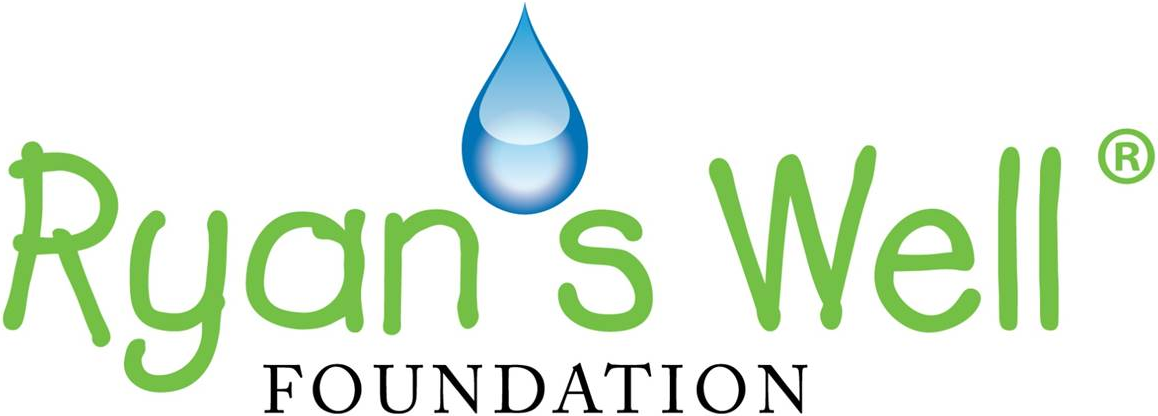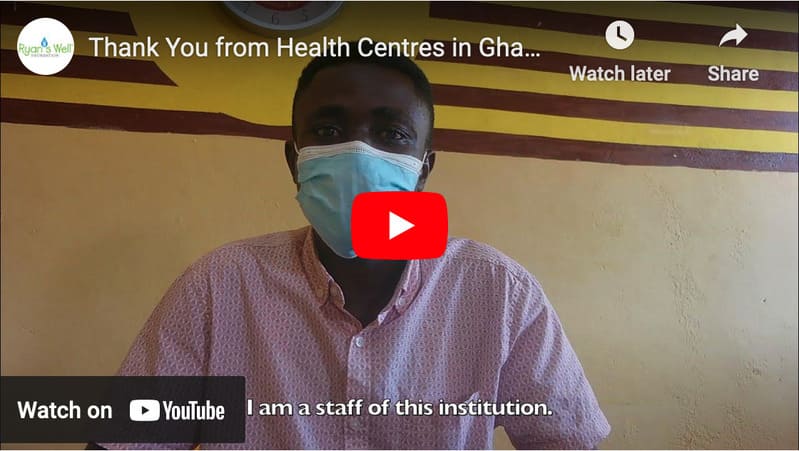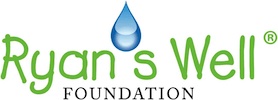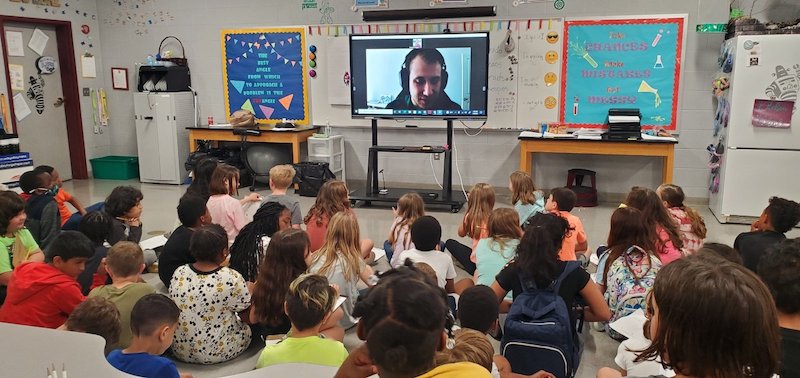ABOUT THE PROJECT
Because project work in Ghana is going so quickly and so well this year, we have decided to add a new project in Ghana for the 2021-2022 year, which will see the construction of five additional deep wells in the Ashanti region of Ghana. These new wells will benefit one community (Amudurase Village), two health centres (Abosamso CHP and Tebeso I CHP) and two schools (Ahweam School and Amponya Krofrom School). Altogether, this project will provide clean water to over 10,699 people!
This project will also see the formation of water committees for each water source, which will be in charge of managing and maintaining the well. DONA will also provide WASH (Water, Sanitation, and Hygiene) training to all communities at each well, which teaches valuable hygiene lessons, such as washing hands at key moments, and collecting clean water in clean containers. Clean water alone can only go so far, and these lessons complement the provision of clean water, to ensure that the population is as healthy as possible! These lessons also include training local mechanics to repair the well if/when it breaks, which ensures that these communities will be able to maintain the water source themselves – independent of external aid. This will mean clean and safe water for generations to come!
WHAT DO THE FUNDS SUPPORT?
- Drilling five new deep boreholes.
- Four overhead holding tanks (for two health centres and for two for schools).
- Piping and washing sinks for two health centres.
- Training Needs Assessment (TNA) for water committees, caretakers, and mechanics.
- Capacity-building for one water committee and two school health coordinators.
- Capacity-building for five Facility Management Committees (caretakers).
- Training for local pump mechanics.
- WASH Training for staff at two health centres, two schools, and one community.
- Ongoing local monitoring and evaluation.
WHY IS THIS PROJECT IMPORTANT?
- In Ghana, more than five million people rely on surface water to meet their daily water needs, leaving them vulnerable to water-related illness and disease, such as malaria and typhoid.
- Water is limited in the Ashanti region, both in quality and in quantity.
- Schools in these areas lack qualified teachers, as they do not wish to work in areas that do not have such basic amenities as clean water. This results in children having fewer opportunities later in life.
- Ghana’s government believes it is the health centres’ responsibility to fund the construction of clean water sources connected to their buildings.
- However, the majority of Ghanaian communities are small scale farmers, with little to no supplementary income, making financing these projects a nearly impossible feat.
- Without clean water, these health centres cannot serve pregnant women, leading to many more pregnancy-related health problems (such as miscarriages) in the area.
- Illegal mining activities in the Ashanti region have led to widespread pollution of surface water (which many use as drinking water) with mercury.
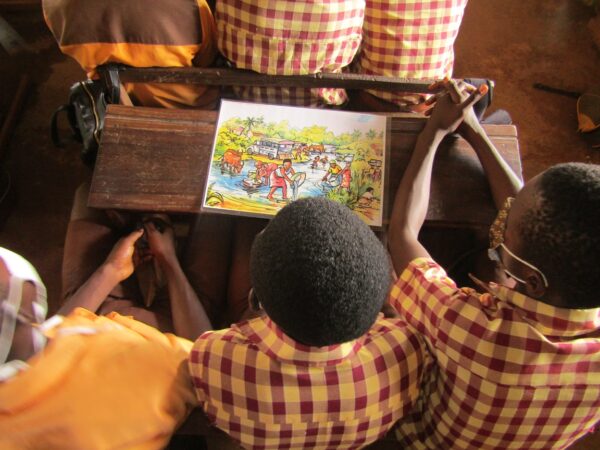
Students learning about the Safe Water Chain, and the various ways water can be contaminated.
About the Area
Ghana is located in West Africa, along the Ivory Coast. Two thirds of the country is covered by savannah, and is mostly flat plains with very few rivers. This terrain makes it very difficult for many people in Ghana to access safe drinking water, and 22 million Ghanaians lack adequate sanitation services (such as a toilet or handwashing station). Without these basic services, people in Ghana frequently suffer from dehydration, malnutrition, and diarrhea (the leading cause of death in the developing world).
The Ashanti region is known as “the kingdom of gold,” and was heavily affected by illegal mining activities, known as “Galamsey,” which has left the majority of surface water in the area polluted with mercury, and much of the infrastructure (roads, buildings, water projects, etc.) destroyed. Because the need is great in this area, Ryan’s Well and our local partner, DONA (Dawn of a New Age), will drill and install sixteen deep wells this year.
In Ghana, more than five million people rely on surface water to meet their daily water needs, leaving them vulnerable to water-related illness and disease, such as malaria and typhoid. The risk of contracting illness in Ghana, and around the world, has increased in recent months, as millions are navigating the COVID-19 pandemic with the added challenge of living without access to safe water. Now, more than ever, access to safe water is critical to the health and well-being of families in Ghana.
The rural Ashanti region, in particular, was heavily affected by COVID-19, and still has the second highest number of confirmed cases in Ghana (most outbreaks are in the main city – the Greater Accra region). For the reasons listed above, Ryan’s Well Foundation, along with our local partner, DONA, will continue our work in the Ashanti region of Southwest Ghana, to provide more than 10,699 people with access to safe water, sanitation services, and WASH (Water, Sanitation, and Hygiene) education training in 2021-2022.
Safe Water Coverage and Population in the Areas in which we are Working (as of 2019):
Adansi South District – Population 144,471 – 52.85%
Bekwai Municipal – Population 162,367 – 75.07%
Bosomefreho – Population 75,256 – 70.48%
Every effort is made to designate your funds as requested; however, if the specified project has become fully funded or unforeseen circumstances delay its start, we may allocate your donation to another important project.
